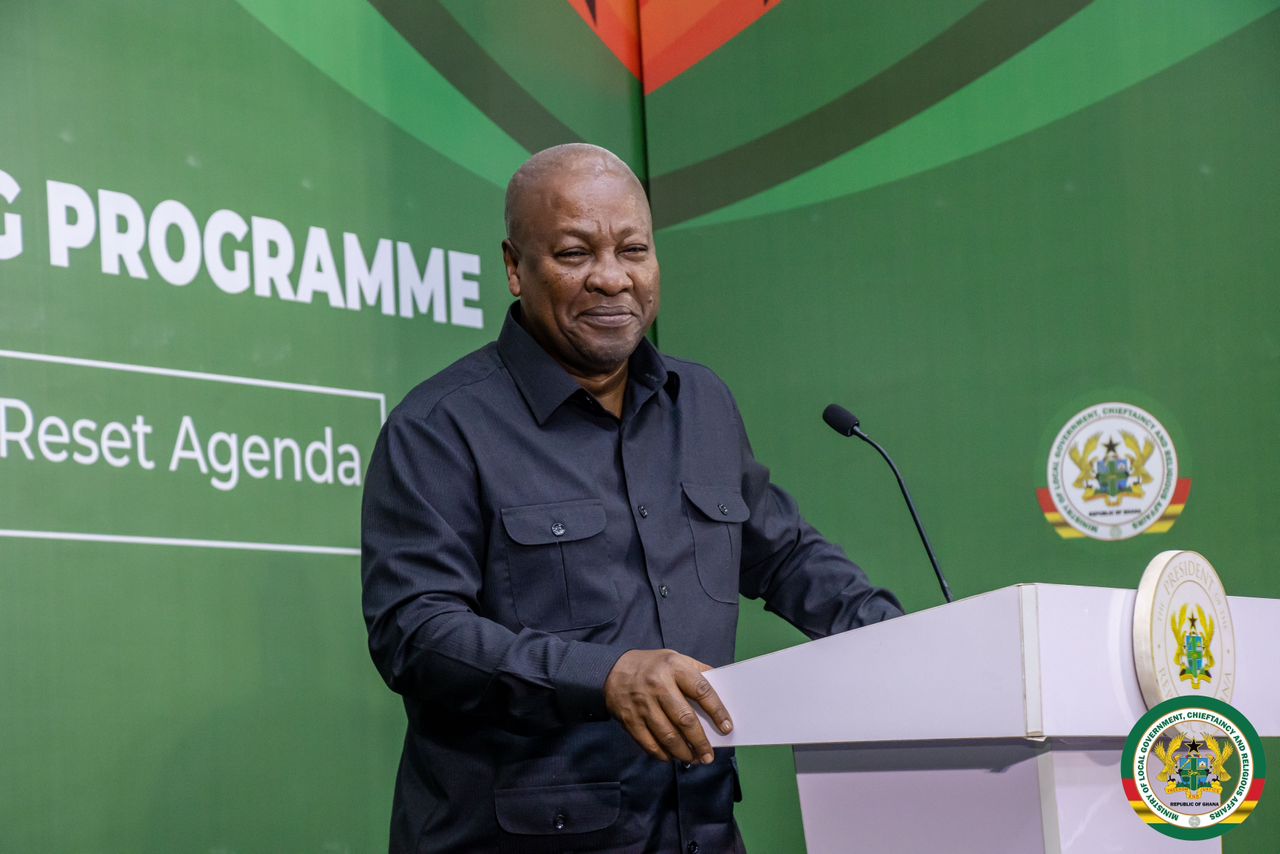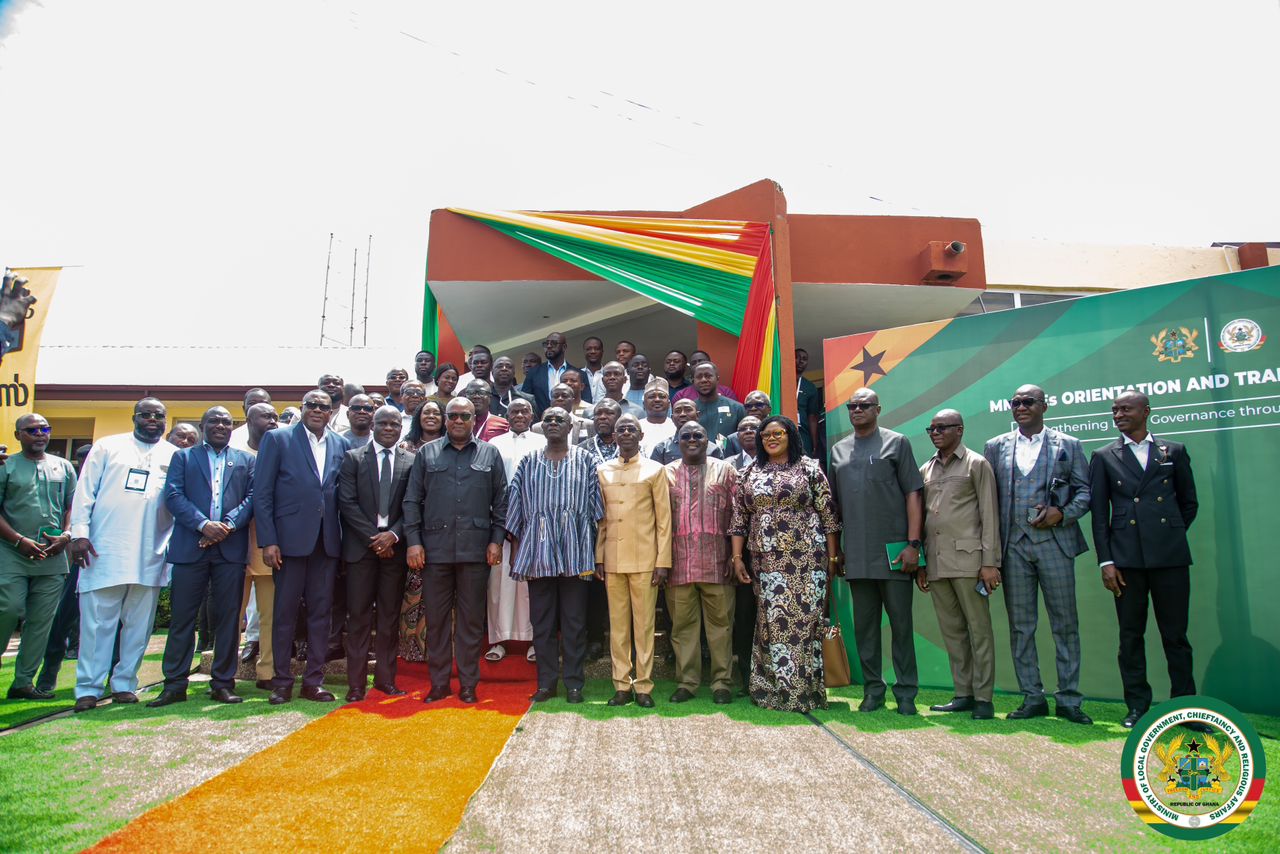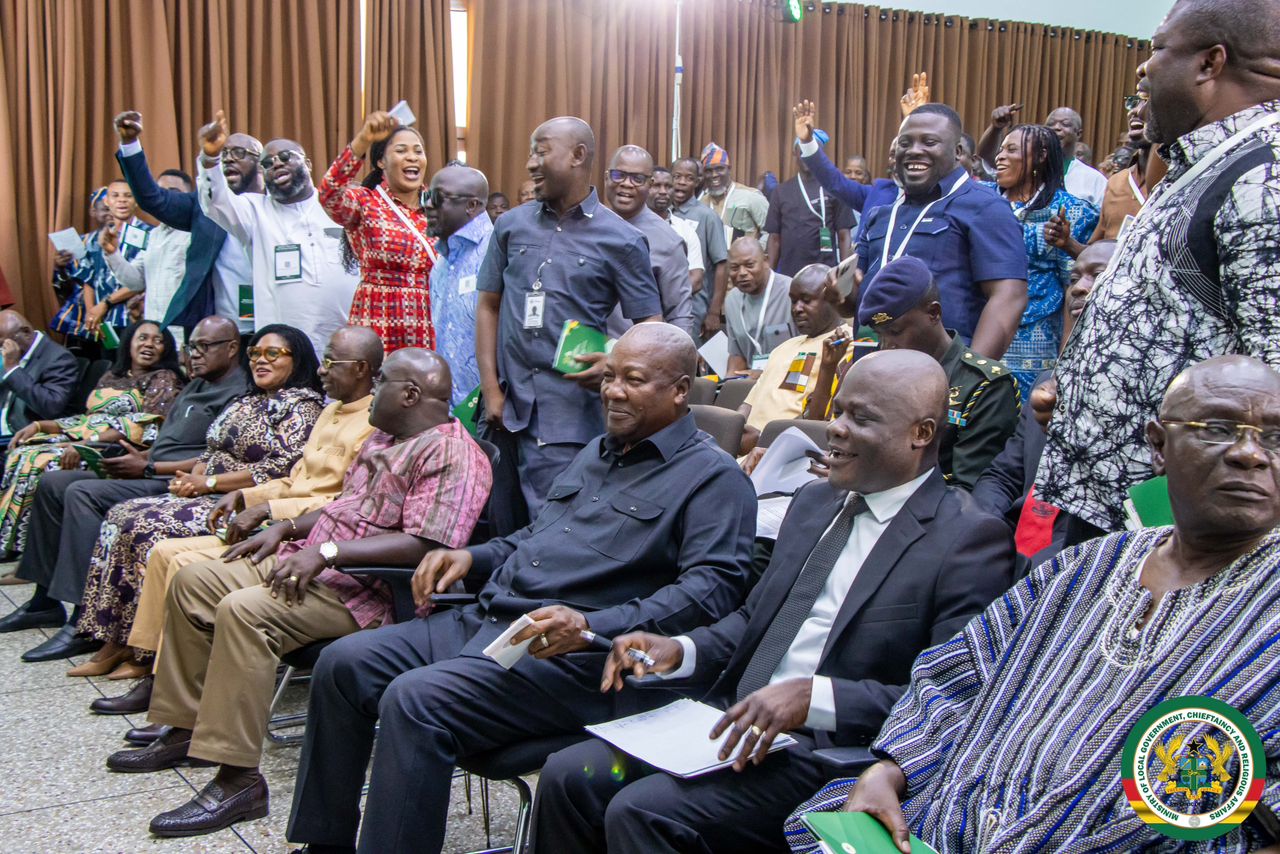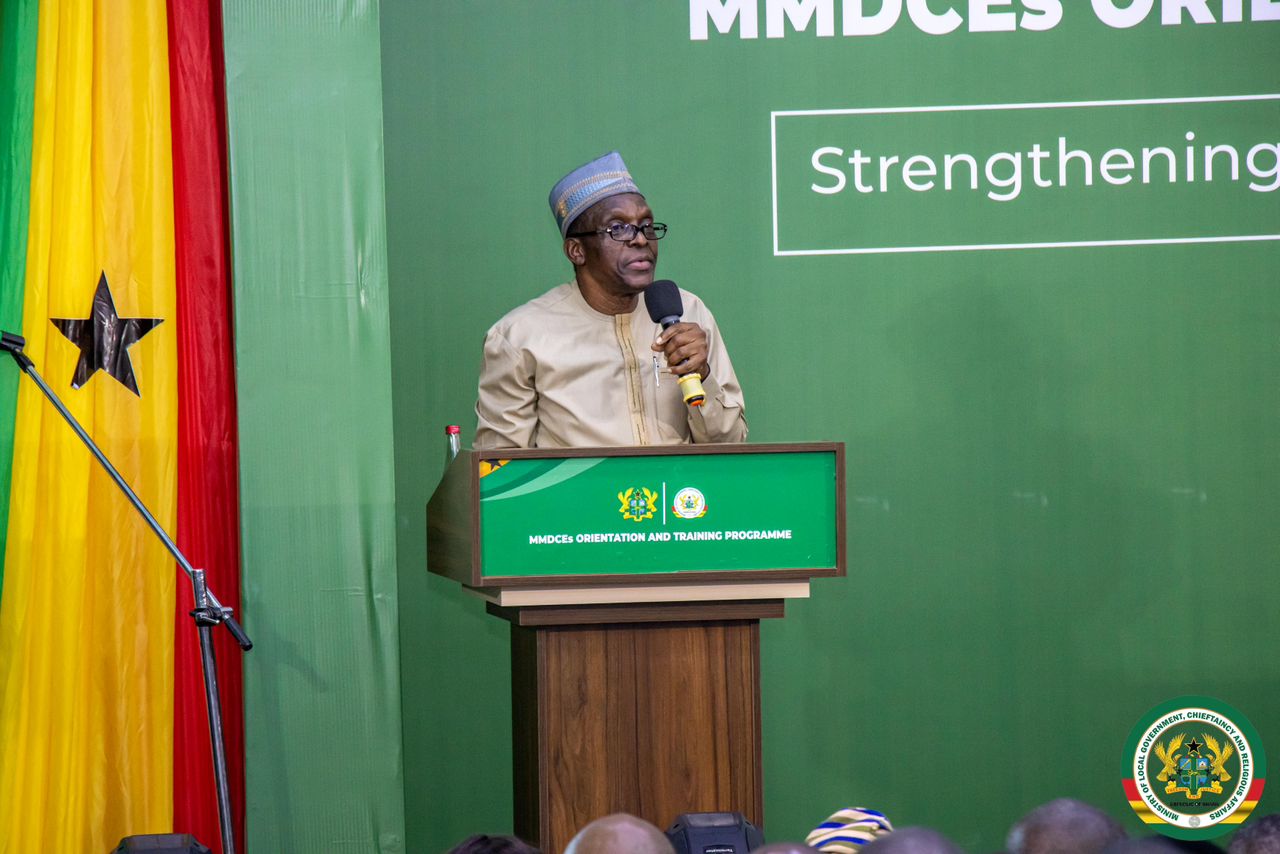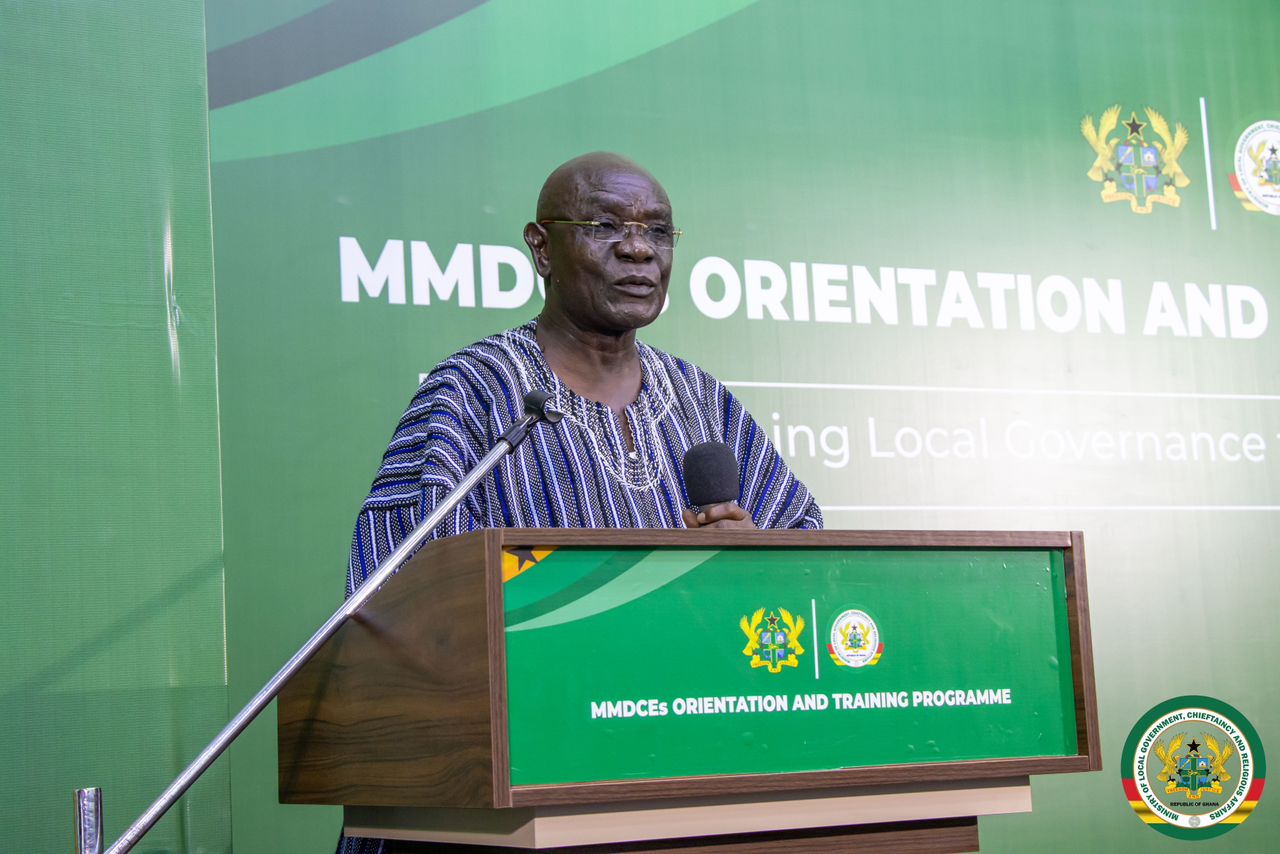President John Dramani Mahama has opened the 2025 Orientation and Training Programme for Metropolitan, Municipal and District Chief Executives (MMDCEs) with a firm call to duty, charging the new local leaders to embrace integrity, accountability and citizen-centred development as the compass of their tenure.
Addressing the gathering at the Institute of Local Government Studies in Accra June 18, 2025, President Mahama described the local governance space as the place where government takes human form and public trust is either built or broken. He urged the new MMDCEs to see themselves not as lords over their districts, but as stewards of the people’s aspirations. “Power must never breed pride,” he cautioned. “Let service not status define your tenure.”
The President anchored his message on ethical leadership, placing integrity at the core of the Reset Agenda being championed by his administration. He reminded the MMDCEs that ethical lapses at the local level are more visible and more damaging, as they directly affect the daily lives of citizens. He emphasized that political office must be a platform for service, not an opportunity for entitlement.
In affirming the government's commitment to transparency, President Mahama announced that all MMDCEs must submit their constitutionally mandated asset declarations by July 15, 2025. Describing it as the first test of trust, he explained that this act of accountability is not a bureaucratic exercise but a moral commitment to public integrity. “Declare your assets not because you are compelled, but because you believe in clean leadership,” he charged.
Sanitation also took center stage in the President’s address. He declared that each MMDCE will be personally held accountable for the sanitation situation in their district, stating that a clean environment must be the visible signature of every leader’s tenure. He announced that a dedicated portion of the District Assemblies Common Fund has been earmarked specifically for sanitation initiatives, and revealed plans to introduce a district performance league table to monitor and publish sanitation outcomes across the country. According to him, procurement processes must be transparent and competitive, with sustainable waste management strategies tailored to the needs of each district.
The President further signalled a major policy shift that could redefine Ghana’s local governance architecture. He hinted that Ghana may begin electing MMDCEs from 2026, making this likely the last group to be appointed by the President. This announcement aligns with widespread public demand for more democratic accountability at the local level. He noted that a national committee is currently reviewing proposals to operationalise this change and that recommendations are expected in the coming months.
He urged the MMDCEs to begin cultivating inclusive and participatory leadership styles in anticipation of this reform, emphasising that local democracy requires open governance, community engagement and responsiveness to citizens’ needs.
President Mahama concluded his address with a call for proactive development planning rooted in local realities. He encouraged the MMDCEs to actively engage traditional authorities, religious leaders, women’s groups, youth organisations and civil society actors to design and deliver policies that are relevant and impactful. “Do not govern from your office,” he said. “Walk the streets. Listen to the people. Let your plans reflect their voice.”
He reaffirmed the administration’s commitment to sectoral decentralisation, noting that responsibilities and resources in key areas such as health, education, roads and sanitation will increasingly be transferred to district assemblies. With this shift, he said, comes greater responsibility to plan effectively and deliver measurable results.
The 2025 Orientation Programme, is expected to expose the new MMDCEs to critical knowledge areas including public financial management, code of ethics, decentralised service delivery, and stakeholder coordination.
Source: Darling Maame Efua Cann
(Public Relations Unit MLGCRA)
